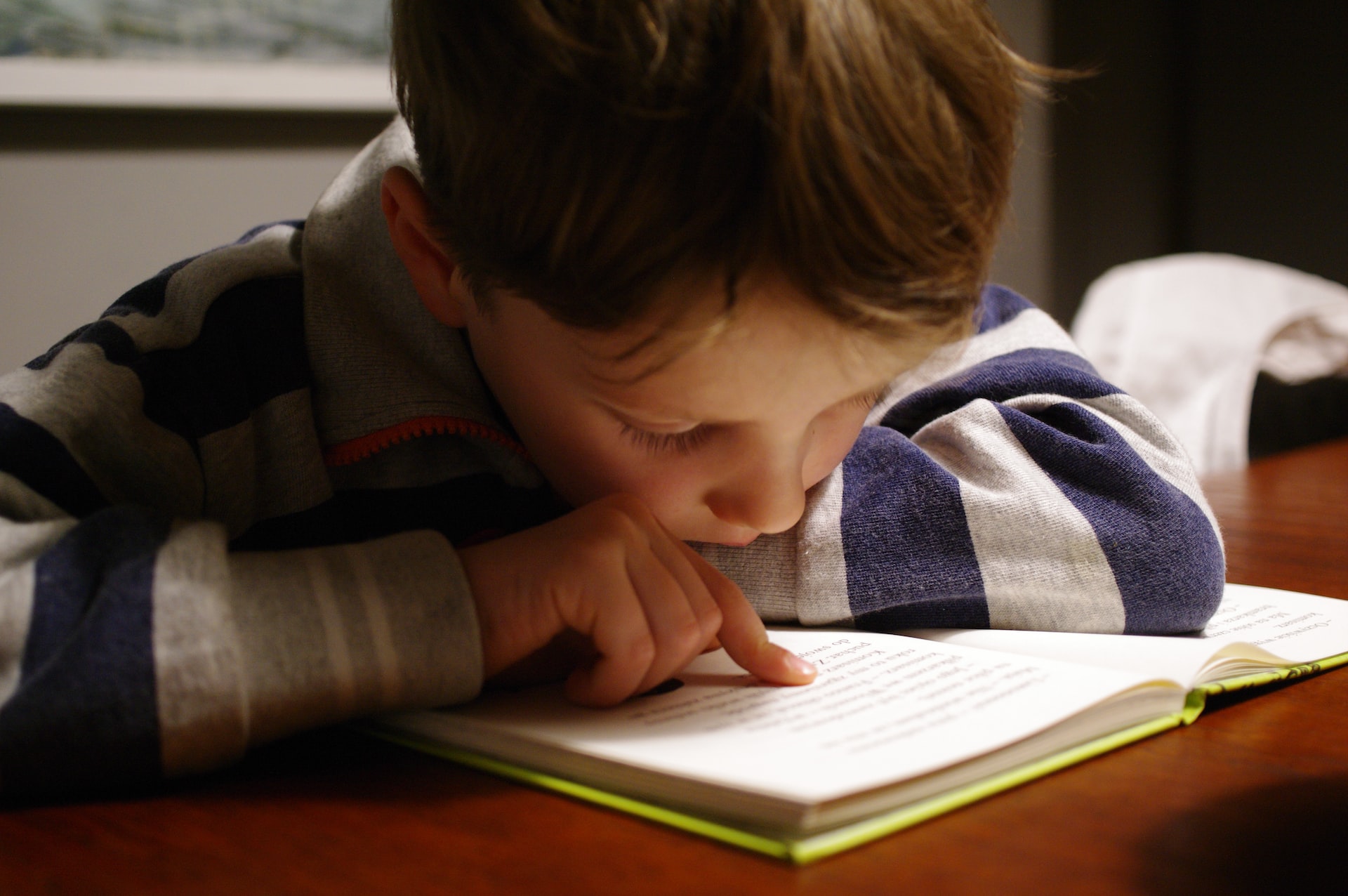Parenting, caregiving, or teaching are difficult tasks. It doesn’t matter how healthy or well-mannered or obedient your child is; it is never easy to train up a child in the way he or she should go.
 Though some behaviors can appear similar to ADHD symptoms that result from lack of proper structure, sleep, and healthy discipline, a clinical ADHD diagnosis can create challenges in child-rearing. Consequently, when concerns arise about your child’s development, mental health, or behavior, it is easy to become overwhelmed and uncertain of how to move forward.
Though some behaviors can appear similar to ADHD symptoms that result from lack of proper structure, sleep, and healthy discipline, a clinical ADHD diagnosis can create challenges in child-rearing. Consequently, when concerns arise about your child’s development, mental health, or behavior, it is easy to become overwhelmed and uncertain of how to move forward.
If you suspect your child may have ADHD, you may have questions like these:
- How can you begin to help him or her?
- How do you walk your child through this struggle?
- What do you need to know?
- What steps do you need to take?
- With whom do you need to speak to so you can give your child all the assistance he or she needs to succeed?
When facing any new challenge in caregiving, or life in general, information is power. While this article should not be used as a substitute for speaking with a healthcare professional, it will define ADHD, discuss how common this neurodevelopmental disorder is in children, and attempt to help parents identify common ADHD symptoms in children. Keep reading to learn more about this condition and better equip yourself to advocate for your child effectively.
What is ADHD?
ADHD – short for Attention-Deficit Hyperactivity Disorder – is a neurodevelopmental disorder that can affect people of all ages but is most common in children between the ages of four and seventeen. It is characterized by difficulties with sustained attention, low impulse control, and hyperactivity. This condition is not a mental health disorder but rather a physical dysfunction of the brain, possibly related to dopamine production.
Recently, advocates raising awareness about ADHD have highlighted some of the often-overlooked, positive aspects of life with the condition. Undoubtedly, some benefits do arise from having a brain that functions differently than most. However, several disadvantages also come with ADHD. This condition may cause those diagnosed with it to find daily life challenging or, at times, impossible.
While research into all the factors that may cause ADHD is still ongoing, recent studies have suggested a genetic component is at play. ADHD is likely hereditary, as many parents of children diagnosed with ADHD also experienced symptoms as children or still experience symptoms in adulthood.
Though this neurodevelopmental disorder can make life more challenging for the people it affects, it is treatable. ADHD symptoms are manageable with the proper care and ongoing treatment.
How common are ADHD symptoms in children?
 According to a national parent survey published in 20161, over 6 million children in the United States have been diagnosed with ADHD. That breaks down to about nine percent of all US children. That same survey also found that boys are more likely to present with hyperactive or combined symptoms than girls.
According to a national parent survey published in 20161, over 6 million children in the United States have been diagnosed with ADHD. That breaks down to about nine percent of all US children. That same survey also found that boys are more likely to present with hyperactive or combined symptoms than girls.
Additionally, that 2016 survey1 reported that approximately six out of 10 children diagnosed with ADHD also presented with at least one other mental, emotional, or behavioral disorder. These associated disorders included conduct disorders, anxiety, depression, autism, and Tourette syndrome.
While ADHD is fairly common in children, it is essential to note that observing ADHD symptoms in children does not always give you cause to suspect those children of having the condition. Any number of non-ADHD factors may cause symptoms of hyperactivity, inattention, and impulsivity.
Therefore, if you are concerned about your child’s behavior, speak to your pediatrician or another primary care physician about your concerns before pursuing any treatment or therapy.
Common ADHD symptoms in children.
ADHD symptoms in children and adults are categorized as inattentive, impulsive, or hyperactive. Not every child with ADHD will experience every sign. Often, individuals will present with predominately inattentive symptoms (previously classified as a separate condition, attention-deficit disorder or ADD) or predominately hyperactive/impulsive symptoms. Though, mixed presentations are also common.
Typical ADHD symptoms in children include:
Inattentive symptoms.
 Difficulty paying attention to small details in schoolwork, chores, or other tasks.
Difficulty paying attention to small details in schoolwork, chores, or other tasks.- Difficulty maintaining sustained attention in work or play.
- Difficulty listening even when directly addressed.
- Distractibility and difficulty following through on tasks or instructions.
- Difficulties with prioritization and organization.
- Avoidance of tasks requiring sustained attention and prolonged mental energy.
- Difficulty keeping track of essential, everyday items such as school bags, lunch boxes, homework binders, keys, etc.
- Forgetfulness even within routine activities.
Impulsive symptoms.
- Tendency to answer questions before they have been fully asked.
- Difficulties with turn-taking.
- Tendency to interrupt conversations or intrude on the activities of others.
Hyperactive symptoms.
- Fidgeting and difficulties sitting still.
- Difficulty staying seated when it is expected.
- Inappropriate or excessive running around, climbing, or feelings of restlessness.
- Difficulty engaging in quiet play or leisure activities.
- Inability to slow down, or may appear to be driven by unnatural energy.
- Excessive talking.
If you are concerned about your child’s behavior, it may be helpful to keep a journal with notes about the symptoms you observe, when you most notice them, and how they impact your child’s daily life or ability to function normally. Bring these notes with you when you speak to your child’s physician about your concerns.
Getting ADHD symptoms in children evaluated.
The first step in helping your child with physical, mental, or behavioral difficulties is a conversation with that child’s pediatrician or primary care physician. Speaking with your child’s doctor will help ensure that all possible explanations for the symptoms are explored and that your child receives the proper treatment.
Before referring you to a specialist, the doctor will likely physically examine your child, run some tests, and rule out any physical conditions contributing to the behaviors you describe.
The path to diagnosis is a little different for everyone. However, after parents, doctors, or academic staff notice ADHD symptoms in children, those children tend to be referred to a pediatrician, psychologist, or other mental health professional for evaluation.
 This evaluation will include an observation of the child to assess his or her behavior. The mental health professional will also collect a detailed behavioral history from parents and teachers.
This evaluation will include an observation of the child to assess his or her behavior. The mental health professional will also collect a detailed behavioral history from parents and teachers.
In order for a child to qualify for an ADHD diagnosis, the symptoms experienced must significantly impact their daily life or ability to function normally. The child must also display at least five symptoms of inattention and at least five symptoms of impulsivity or hyperactivity. These symptoms must present in multiple settings (home, school, social settings, etc.) and not be better explained by another mental disorder.
Once your child has been diagnosed, your family’s healthcare team will be able to help you choose the right course of treatment. Treatments for ADHD symptoms in children may include stimulant medications, non-stimulant medications, behavioral interventions, psychiatric support, or counseling. ADHD treatments are most effective when children also receive treatment for any co-occurring physical, mental, emotional, or behavioral health conditions.
Counseling can help.
The impacts of ADHD can increase stress on the affected child and the whole family. Forgetfulness, impulsiveness, and behavioral complications related to the disorder may strain parent-child, sibling, and other family relationships, particularly when these symptoms remain unexplained. However, there is help available.
When combined with medication, family or individual counseling can significantly increase the quality of life for those with ADHD. Professional counselors can play an essential role in your child’s ADHD treatment plan. These mental health professionals may assist your child in developing strategies for resolving conflict, self-motivating, and cultivating self-esteem.
Additionally, if you or your child struggle with symptoms of anxiety or depression related to an ADHD diagnosis, speaking with a qualified counselor can help. No matter what therapeutic approach your counselor uses, they should be able to assist you in finding new ways to think about the diagnosis. A qualified counselor will also help you to develop new strategies for managing the difficulties that arise from life with ADHD.
Whether you have just begun to notice signs of ADHD in your child, or your family has already begun a treatment plan, it is always the right time to schedule your first appointment with a local counselor. Get the support you and your child need to navigate life with ADHD. Contact a local Christian counselor today.
References:
Danielson ML, Bitsko RH, Ghandour RM, Holbrook JR, Kogan MD, Blumberg SJ. “Prevalence of parent-reported ADHD diagnosis and associated treatment among U.S. children and adolescents,” 2016. Journal of Clinical Child and Adolescent Psychology. 2018, 47:2, 199-212.
“Reading”, Courtesy of Michal Parzuchowski, Unsplash.com, CC0 License; “School Days”, Courtesy of Element5 Digital, Unsplash.com, CC0 License; “Question”, Courtesy of Taylor Flowe, Unsplash.com, CC0 License; “Laughter is the best medicine”, Courtesy of Ben White, Unsplash.com, CC0 License






